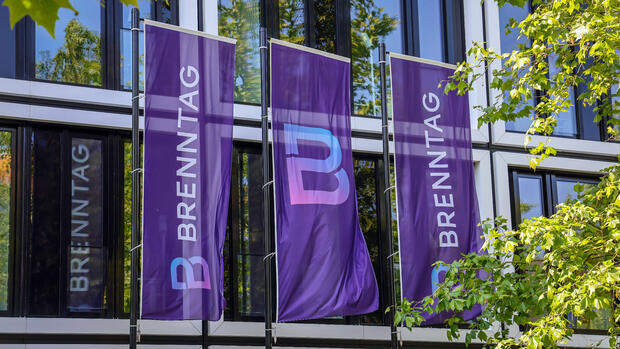Dusseldorf The activist investor Primestone has failed in the election of the new supervisory board members of the chemicals dealer Brenntag. On Thursday, the majority of shareholders elected the two new controllers proposed by the Dax group. However, the vote was close and there is a risk of a legal dispute over the electoral process.
The British Primestone wants to increase the pressure on the company management and had put up two opposing candidates. The fund, which has a two percent stake in Brenntag, calls for the group to be broken up quickly and expects this to result in a significant increase in value.
After the results were announced by Doreen Nowotne, head of the Brenntag supervisory board, the Primestone representative immediately objected on Thursday. He raised a possible procedural error during the vote. Nowotne interrupted the meeting and later explained that there was no error according to an audit.
Whether Primestone will now sue against the decision is open. The fund has already shown in the dispute over the past few months that it can fight with tough bandages. Any shareholder is free to contest the resolutions of the Annual General Meeting, provided that they object immediately. Usually, a lawsuit is filed for violation of information obligations or possible procedural errors.
For the Brenntag management, the decision in favor of the candidates put forward by them means a significant relief. CEO Christian Kohlpaintner does not want a quick split of the group, but plans a gradual reorganization of the world’s largest chemical dealer. At the general meeting, he once again campaigned for his approach.
His course is supported by the supervisory board, which will be led by Richard Ridinger in the future. The former boss of the Swiss pharmaceutical supplier Lonza is already represented on the control committee. Nowotne had declared her withdrawal. At the Annual General Meeting, she addressed urgent words to the shareholders.
Brenntag is in a “phase that is critical to success” and the company is in the middle of building a new global organization. “I ask for your understanding and support. Join Brenntag in this,” said Nowotne. It is also about the interests of employees and customers. “I am convinced: without stakeholder value there is no shareholder value.” Many German shareholders want continuity in terms of personnel and no break in the group.
German shareholders against Primestone’s conflict course
In addition to Ridinger, Sujatha Chandrasekaran was newly elected to the supervisory board, who worked, among other things, as digital boss at the US hygiene article manufacturer Kimberly Clarke. However, both only achieved a narrow majority of around 62 percent of the votes at the Annual General Meeting.
If German and European major shareholders had not supported the leadership, a defeat would have been possible. The Kuehne Holding and the asset manager Flossbach von Storch together hold more than ten percent of the shares.
The German fund companies DWS, Deka and Union also voted for Brenntag’s candidates. They also want the group to increase in value, but don’t want to use a crowbar to change course.
Primestone had the two influential US proxy advisors ISS and Glass Lewis on its side. Apparently, many Anglo-Saxon shareholders adhered to their recommendation to vote for the investor’s two candidates.
Signal effect far beyond Brenntag
The Annual General Meeting has a signal effect far beyond Brenntag. It is about the question of how strongly an activist investor can assert himself with German companies with strategic demands. Even if Primestone has now failed at Brenntag for the time being: Experts expect hedge funds to act more aggressively in the future.
“The case shows that activist investors, even with small blocks of shares, try to push strategic goals in corporations by specifically involving institutional investors, asset managers and voting rights advisors,” says Michael Brellochs, a partner at the Noerr law firm.
This practice has been around in the US for a long time. “We expect that such campaigns will also continue to increase in Germany,” says Brellochs. “Shareholder and stakeholder management is a central task and challenge for the board of directors, especially in critical phases of transformation.”
The Brenntag boss does not want a quick split of the group, but plans a gradual reorganization of the world’s largest chemical dealer.
(Photo: Brenntag)
Brenntag is in the middle of the conversion. The group has created two segments – one for the distribution of specialty chemicals and one for the bulk business. Both shops work according to different rules. The group also wants to check whether they stay under one roof. However, other models than a simple split are also conceivable, said CEO Kohlpaintner.
Primestone criticizes that Brenntag is lagging behind focused competitors, especially in the specialty business, and that the group is not tackling the problems vehemently enough. The representative of the fund at the general meeting accused the supervisory board of forming a “wagon castle”.
With the vote of 38 percent of the shareholders behind it, it is foreseeable that Primestone feels confirmed. It is therefore to be expected that the investor will not withdraw from Brenntag. He has not commented on this yet.
More: German corporations are becoming the preferred target of activist shareholders.

